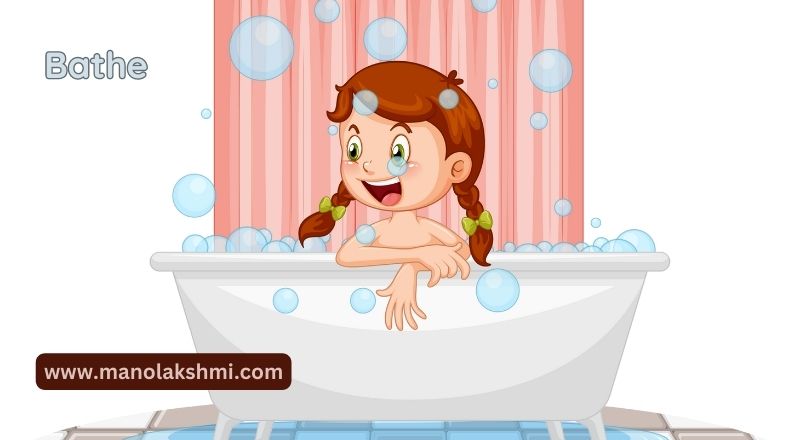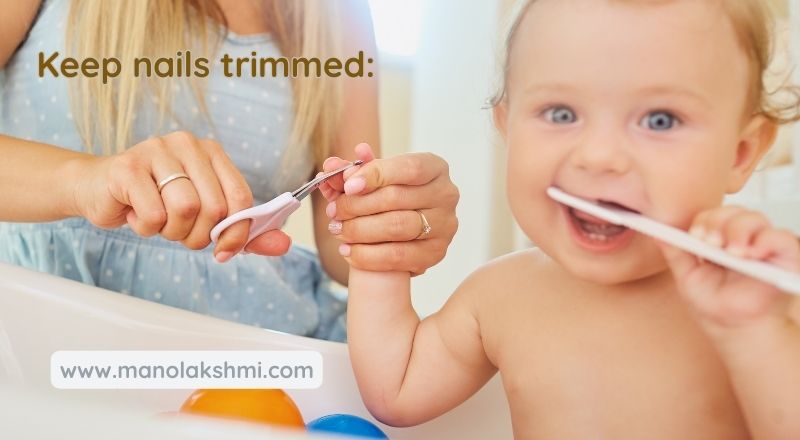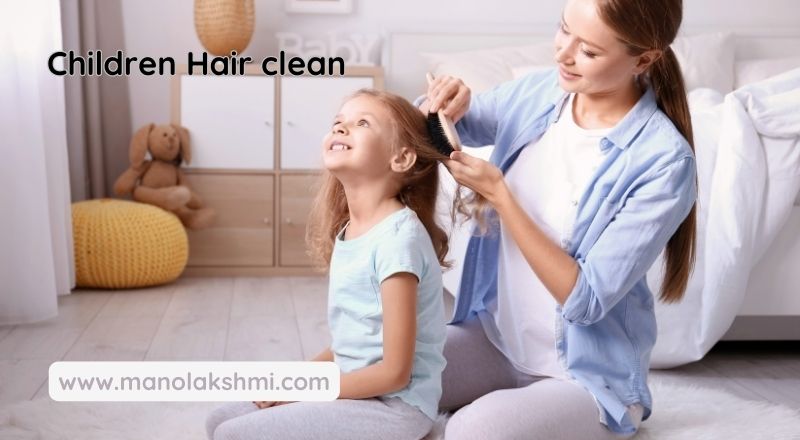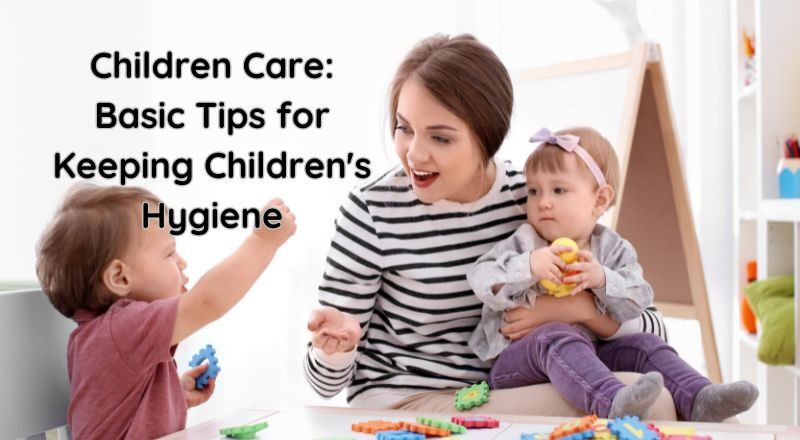Children’s care encompasses a range of activities and considerations aimed at ensuring the well-being and development of children. It includes providing a safe and nurturing environment, meeting their basic needs such as food, shelter, and clothing, and attending to their physical, emotional, and educational needs. Childcare can involve parents, family members, or professional carers who engage in activities like feeding, bathing, playing, and teaching children essential skills. It’s crucial to create a supportive and loving environment that fosters their growth, learning, and emotional well-being.
Hygiene Safety Practices
Maintaining good hygiene practices is essential for the overall health and well-being of children. Some important hygiene safety practices that parents and carers should keep in mind:
Teach children to wash their hands thoroughly with soap and water for at least 20 seconds. Especially after using the toilet, before eating, and after playing outside.
Encourage children to cover their noses and mouths with a tissue or elbow when they cough or sneeze to prevent the spread of germs.
Make sure children know how to brush their teeth properly, at least twice a day for two minutes each time, to prevent tooth decay and gum disease.
Keep children’s nails trimmed to prevent dirt and germs from accumulating underneath them.
Regularly clean and disinfect surfaces and objects that children frequently touch, such as toys, doorknobs, and light switches.
Teach children not to share personal items such as combs, brushes, towels, or utensils to reduce the risk of spreading germs.
By following these simple hygiene safety practices, parents and carers can help keep children healthy and prevent the spread of illness.
Make handwashing a habit
Handwashing is a simple yet effective way to stop the spread of germs and diseases. By making it a habit, you can protect yourself and those around you from getting sick.

Wash your hands frequently throughout the day, especially before and after eating, after using the bathroom, and after being in public places.
Use soap and water and wash your hands for at least 20 seconds. Singing “Happy Birthday” twice can help you keep track of the time.
If you don’t have access to soap and water, use hand sanitiser with at least 60% alcohol.
Encourage others to practise good hand hygiene by setting an example and reminding them to wash their hands regularly.
Remember, handwashing is a small action that can have a big impact on your health and the health of those around you. Let’s all make it a habit!
bath regularly
Bathing regularly is an essential part of maintaining good hygiene and overall health.
 Removes dirt and bacteria: Bathing helps to remove dirt, sweat, and bacteria from your skin, which can reduce the risk of infections and skin irritations.
Removes dirt and bacteria: Bathing helps to remove dirt, sweat, and bacteria from your skin, which can reduce the risk of infections and skin irritations.
Improves circulation: Warm water can help to increase blood flow and circulation, which can improve overall health and reduce the risk of certain health conditions.
Relieves stress: Taking a warm bath can help to relax tense muscles and reduce stress levels, which can have a positive impact on your mental health.
Improves sleep: Taking a warm bath before bed can help to relax your mind and body, which can improve the quality of your sleep.
Remember to use mild soap and warm water when bathing, and avoid using very hot water, as it can dry out your skin.
Brush teeth twice a day
Skimming your teeth is a critical part of keeping good oral hygiene. Regular brushing of teeth helps to remove plaque and bacteria that can cause tooth decay and gum disease.
Use fluoride toothpaste to strengthen teeth and prevent tooth decay.
Use a soft-bristled toothbrush to avoid damaging your gums and teeth.
Brush for at least two minutes, making sure to cover all surfaces of your teeth.
Don’t forget to brush your tongue to remove bacteria that can cause bad breath.
Remember to replace your toothbrush every three to four months or when the bristles start to fray.
By following these simple tips, you can help keep your teeth and gums healthy and prevent dental problems in the future.
Keep nails trimmed:
Keep nails trimmed: Short nails are less likely to harbour dirt and bacteria, so make sure to keep your children’s nails trimmed and clean.

Keeping your children’s nails trimmed and clean not only reduces the risk of dirt and bacteria. But it also promotes good hygiene practices.
Use a soft-bristled brush to clean the nails and surrounding skin gently.
Encourage your children to wash their hands regularly to prevent the spread of germs.
Teach your children not to bite their nails, as it can introduce harmful bacteria into their mouths.
If your child participates in sports or other activities, consider using gloves or other protective gear to prevent nail damage and reduce the risk of infection.
If you notice any signs of infection, such as redness, swelling, or pus around the nail, seek medical attention promptly. Infections can quickly spread and cause serious health complications.
Practice good nail care yourself, as it sets an excellent example for your children to follow.
Wash clothes:
Wash clothes and bedding regularly: regular washing of clothes and bedding helps to prevent the buildup of germs and bacteria.
As a parent or carer of children, it’s important to maintain good hygiene habits to keep them healthy and safe. Washing your children’s clothes and bedding regularly is one of the most important things you can do to prevent the spread of germs and bacteria that can cause illnesses. Here are some reasons why washing your children’s clothes and bedding regularly is important:
Children’s clothes and bedding can easily become contaminated with germs and bacteria from normal daily activities like playing, eating, and sleeping.
Washing your children’s clothes and bedding regularly can help remove these germs and bacteria, reducing the risk of illness and infection.
Regular washing also helps to remove dirt, sweat, and other stains from clothes and bedding, keeping them fresh and clean.
For children with allergies or sensitive skin, wash clothes and bedding regularly. Can help reduce their exposure to irritants and allergens.
Finally, washing your children’s clothes and bedding regularly. Can help prolong their lifespan, keeping them in good condition for longer.
Children’s hair is clean
Having clean hair is crucial for children’s hygiene and overall health. Here are some reasons why keeping children’s hair clean is essential:

Prevents the buildup of dirt and bacteria on the scalp. Which can cause infections and other skin conditions.
Minimises the risk of lice infestations, which can spread easily in schools and daycare centres.
Makes it easier to manage and style hair. Which can boost children’s confidence and self-esteem.
Keeps hair smelling fresh and looking healthy.
To maintain clean hair for children, it’s important to establish a regular hair-washing routine that takes into account their hair type and activity level. For example, children with oily hair may need to wash it more frequently than those with dry hair. Additionally, using kid-friendly shampoos and conditioners can help make the hair-washing process more enjoyable and effective.
Children’s care: Eat hygienic food
Maintaining good hygiene is essential to keep children healthy and free from illnesses caused by contaminated food.
Encourage hand washing: Before eating, children should wash their hands with soap and water for at least 20 seconds to remove any bacteria or viruses that may be present on their hands.
Clean and sanitise surfaces: It’s important to clean and sanitise all surfaces that come into contact with food. Such as cutting boards and countertops, to prevent the spread of harmful bacteria.
Store food properly: Food should be stored at the correct temperature to prevent the growth of bacteria and other microorganisms that can cause foodborne illnesses.
Choose healthy options: Providing children with a balanced diet that is rich in fruits, vegetables, whole grains, and lean protein. Can help them maintain their health and prevent chronic diseases in the future.
By following these guidelines, you can help ensure that the food children eat is not only tasty but also safe and healthy.
Learn more: Child care: How to take care of your child
Conclusion
Ultimately, good hygiene practice stems from a commitment by all parties to good hygiene practices at daycare and home. Parents may assist their children to develop excellent hygiene habits at home by modelling and performing simple hygiene tasks like hand washing and airing out.
